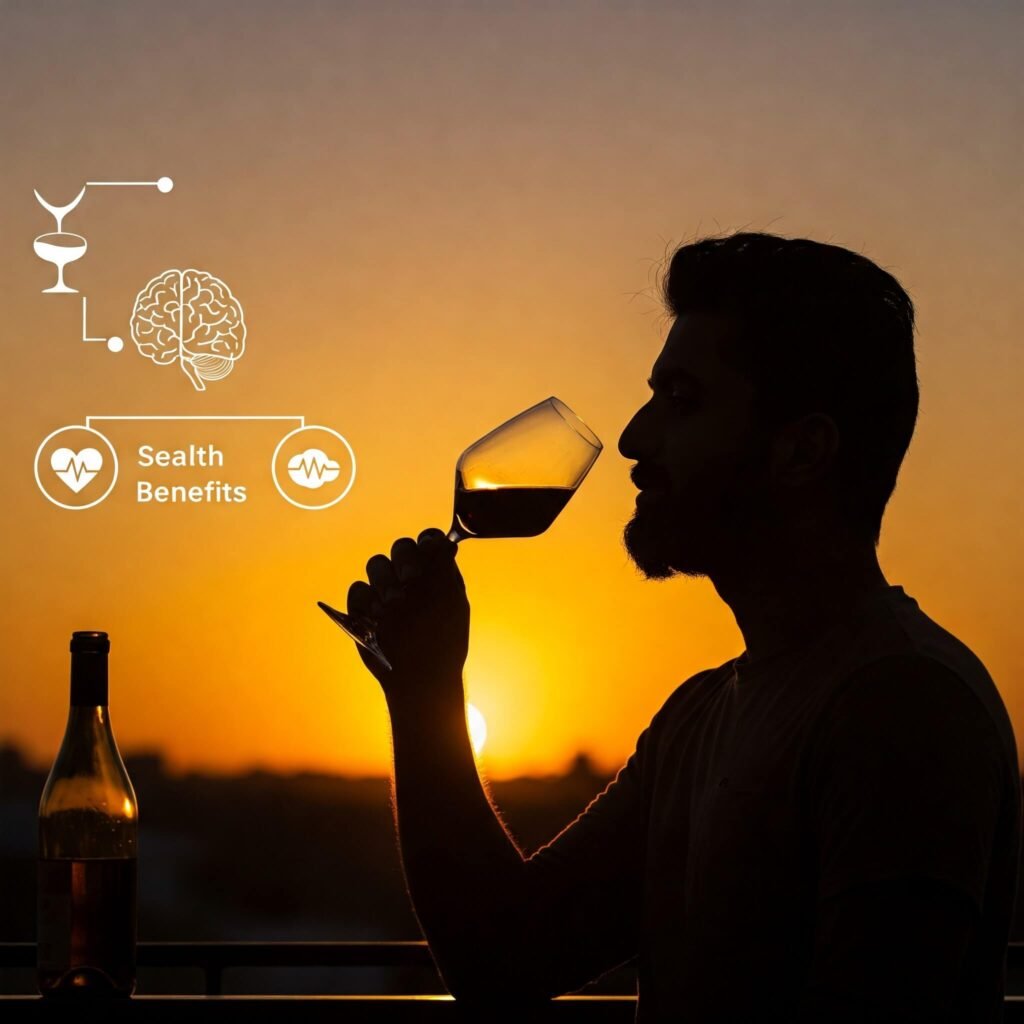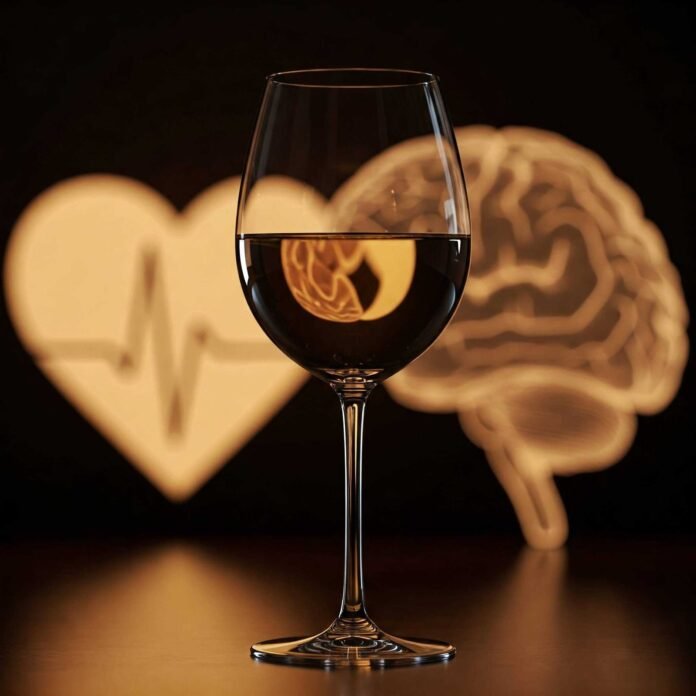Moderate Drinking: Unveiling the Surprising Health Benefits benefits got me curious, sprawled in my dim Denver apartment, snow tapping the window, the faint smell of burnt toast from my botched breakfast lingering. Like, seriously? I used to chug beers at tailgates, thinking it was all bad, until I spilled a merlot on my shirt at a friend’s dinner, looking like a total doofus. As a regular American fumbling health trends, I’ve dug into the science of moderate alcohol consumption benefits for 2025. Contradictions? I love a buzz but worry it’s a trap. Let’s unpack what experts say, before I knock over my coffee mug.
Heart Health and Moderate Alcohol Consumption Benefits
Moderate drinking—one glass a day—can help your ticker, thanks to antioxidants. I read this on my couch, heater humming, scrolling Mayo Clinic Mayo Clinic. A 2023 study says it cuts heart disease risk by 20% American Heart Association. I tried sipping red wine after a snowy hike, heart racing, but overdid it once—felt awful. Moderate alcohol consumption benefits need restraint. My goof? Thought more wine meant more health—nope.
Red Wine’s Role in Moderate Alcohol Consumption Benefits
Red wine’s a star for moderate alcohol consumption benefits, packed with resveratrol. It might lower cholesterol, per Harvard Health Harvard Health. I sipped pinot noir at my table, snow piling outside, but forgot to check my stats—duh. Contradiction? I love wine’s vibe but stress it’s overhyped. Stick to 5 oz daily, says WebMD WebMD. Spilled a glass just now—classic chaos.

Brain Boost from Moderate Alcohol Consumption Benefits
Light drinking might help your brain, which blew my mind. A 2024 study says moderate alcohol consumption benefits include lower dementia risk Healthline. I tried a gin spritzer at a trivia night, Denver skyline glowing, but blanked on answers—embarrassing. Contradiction? I’m hyped but skeptical it’s a brain saver. Gin or vodka with soda keeps it light. My mistake? Overpoured once, got too tipsy.
Gut Health and Moderate Alcohol Consumption Benefits
Moderate alcohol, like wine, can feed good gut bacteria. Polyphenols are key, per a 2025 report Nutrition Facts. I sipped sauvignon blanc during a Netflix binge, pretzels everywhere, thinking I was healthy. Overdid it, felt bloated—dumb move. Moderate alcohol consumption benefits need balance, or it’s trouble. Experts say one drink max CDC.

Risks That Mess With Moderate Alcohol Consumption Benefits
Overdoing it kills moderate alcohol consumption benefits—two drinks max, or liver issues spike CDC. I learned this after a bar crawl, head pounding, vowing to quit (lasted three days). Calories add up—150 per glass. My error? Thought “moderate” meant three beers. Now I’m careful, but just spilled pretzels—chaos mode. Moderation’s the trick, per Healthline Healthline.
Tips to Nail Moderate Drinking Benefits Benefits
My sloppy hacks for moderate alcohol consumption benefits:
- One 5 oz drink daily—wine or spirits Mayo Clinic.
- Pair with food—nuts, cheese—to slow absorption. Spilled sauce once—ugh.
- Pick low-sugar options like dry wine Wine Spectator.
- Avoid if alcohol’s risky for you—my cousin’s story scared me. I’m shocked how little you need for moderate alcohol consumption benefits. Gotta watch it, though.
Wrapping Up My Take on Moderate Alcohol Consumption Benefits
Done rambling—moderate alcohol consumption benefits are real but not magic. From my snowy Denver nook, toast burning and heater humming, I say: Sip one glass, enjoy, don’t expect miracles. I’ve botched plenty with overpouring. Got a drinking tip or spill story? Share below—I need laughs. Check Healthline for science before you sip too much like me.
For a deeper dive into the health debates, check out the CDC’s guidance on alcohol and public health – they keep it pretty straightforward.




































